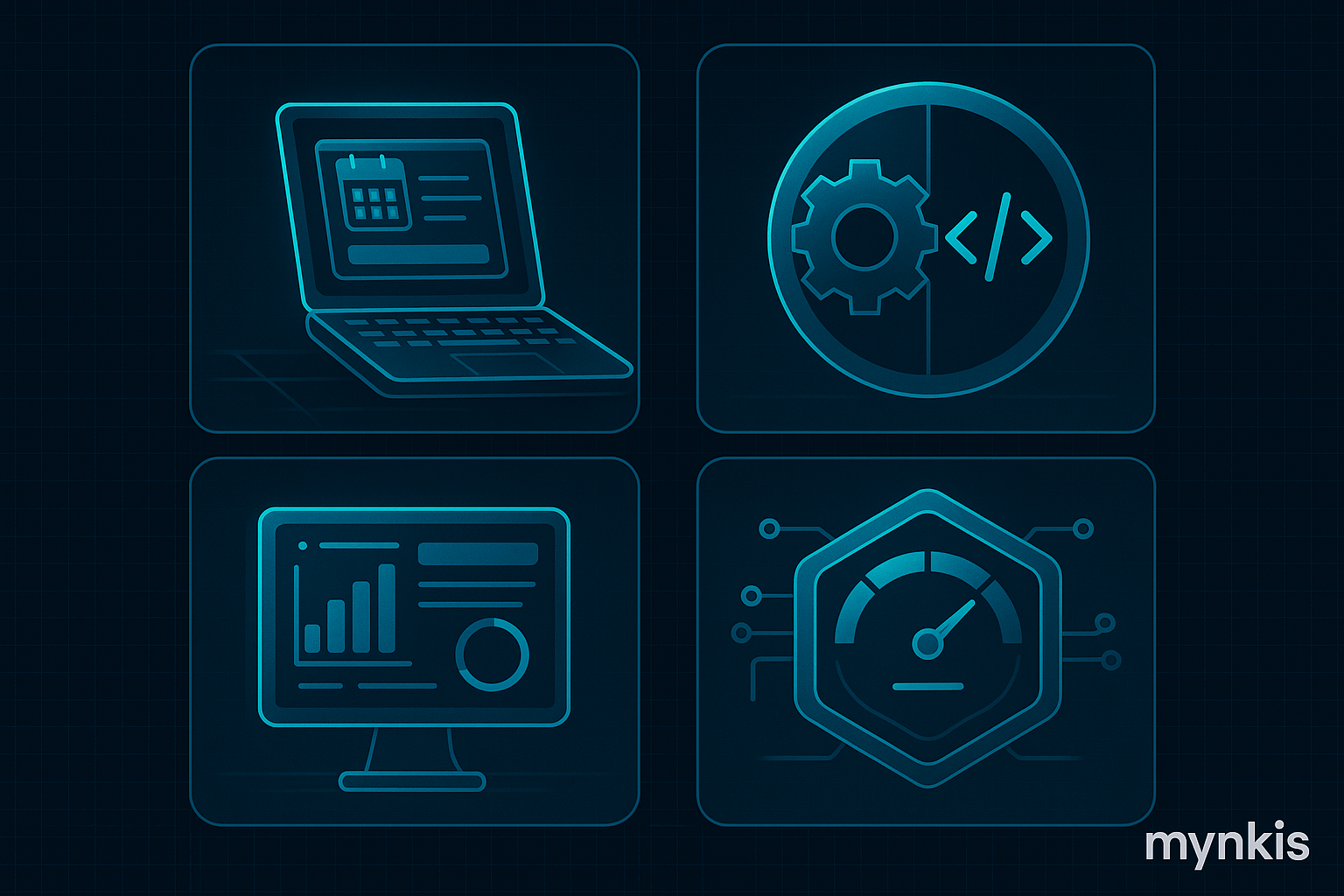Schedule a Demo
Today's business landscape demands more than just a booking website; it requires a platform that can adapt, integrate, and thrive. As owners look to maximize their booking conversions through design and organic search, integrating various software systems becomes a crucial step towards achieving that goal. Seamless integration can streamline operations, enhance user experience, and ultimately, boost your bottom line.
Integrating your booking system with other business tools and software can revolutionize the way you manage and grow your business. Consider a scenario where your booking platform seamlessly communicates with your CRM system, your accounting software, and even your marketing tools. In my work with operations managers, I've seen how this integration can save countless hours and reduce errors, providing a smoother workflow and a better service experience for your clients.
A well-integrated booking system can drastically improve user experience on your website. When everything is interconnected, your users experience a fluid journey from booking to payment to follow-ups. For instance, integrating your booking system with a robust payment gateway ensures that payment processing is seamless and secure, reducing friction and abandoned bookings. Additionally, personalized user experiences, driven by CRM integration, can make your visitors feel valued and more likely to convert.
The key to achieving successful integration is through the use of Application Programming Interfaces (APIs). APIs act as the backbone of your custom software development efforts, allowing different software systems to communicate and work together harmoniously. Whether you're connecting a CRM, an accounting tool, or a marketing platform, using APIs ensures that data flows effortlessly between systems, enhancing efficiency and user experience.
Integrated systems can also have a positive impact on your organic search rankings. When your booking website seamlessly connects with your marketing tools, you can create more targeted and effective SEO campaigns. For example, using data from your CRM and booking system can help tailor your content and keywords to what your audience is genuinely interested in, leading to better search rankings and increased conversions.
While the benefits are clear, integrating various software systems isn't without its challenges. Data security and compliance, maintaining system compatibility, and ensuring seamless data flow are some of the hurdles you might face. However, with the right approach, these can be overcome. Engaging with a custom software development team that specializes in enterprise web solutions can guide you through this process, making sure your integrations are secure, efficient, and geared towards your business goals.
Here are a couple of examples where businesses have successfully leveraged software integrations to enhance their booking websites:
While technology is essential, never lose sight of your users. Every integration should be evaluated based on how it improves the end-user experience. For instance, real-time updates from your booking system to your customer service dashboard can drastically improve customer support response times, enhancing overall user satisfaction. Always consider how these integrations might simplify or complicate the life of your users.
In the evolving world of technology, future-proofing your booking platform should be a priority. When choosing software integrations, consider scalability and the ability to incorporate new technologies. Your integration partners should be forward-thinking and offer solutions that can grow with your business. Based on available research, individual results may vary, but engaging with experts in custom software development ensures that your platform can adapt to future needs and trends.
Ready to start integrating your systems? Here's a straightforward approach:
Once your systems are integrated, continuous monitoring and optimization are key. Utilize analytics to track how each integration is affecting your booking conversion rates, customer satisfaction, and operational efficiency. Don't shy away from adjusting or replacing systems if they're not yielding the desired results. Your platform should be a living, breathing organism that can evolve with your business needs.
When discussing custom software development and software integrations, security must not be overlooked. According to guidelines from the National Institute of Standards and Technology (NIST), protecting customer data during and after integration is paramount. Ensure that all integrations meet compliance standards, such as GDPR or HIPAA if relevant, and regularly update your security protocols to safeguard your user's information.
Future-forward enterprises are now leveraging artificial intelligence and machine learning in their integrated systems to predict booking trends, personalize user experiences, and optimize operations. These technologies can analyze vast amounts of data from your booking system to provide insights that drive better decision-making and streamline your business processes.
Partnering with specialists in enterprise web solutions can make all the difference in how effectively you integrate your booking website with other systems. By harnessing their experience and expertise, you can navigate the complexities of software integration, ensuring that your platform not only functions optimally but also grows with your business.
Integration is not just a tech trend; it's a strategic imperative for businesses seeking to remain competitive and deliver superior user experiences. With the right approach, software integrations can transform your booking website into a powerhouse of efficiency and user satisfaction. Always aim for systems that enhance user experience, support your SEO efforts, and align with your long-term business goals.
